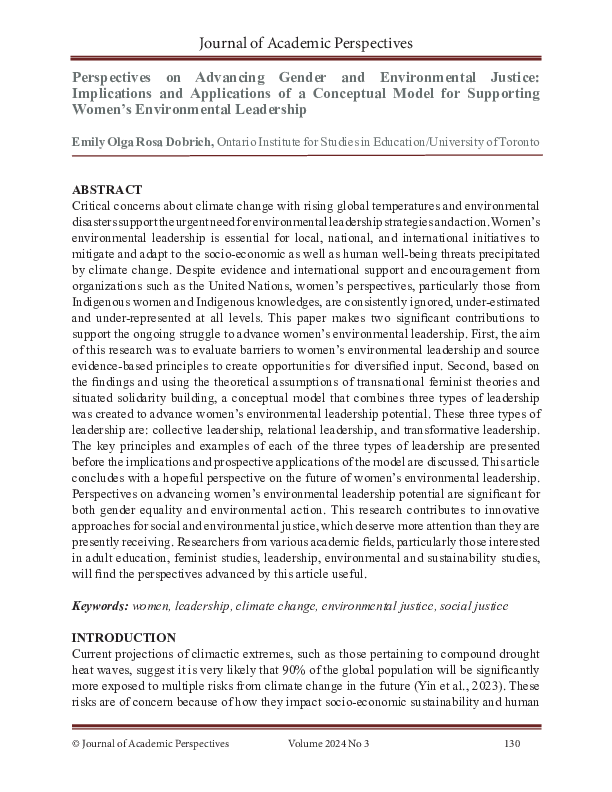Perspectives on advancing gender and environmental justice: implications and applications of a conceptual model for supporting women's environmental leadership

Journal of Academic Perspectives
2024
2024
3
130-154
women ; climate change ; environment ; political leadership ; social justice
Gender equality & Women
https://www.journalofacademicperspectives.com/
English
Bibliogr.
"Critical concerns about climate change with rising global temperatures and environmental disasters support the urgent need for environmental leadership strategies and action. Women's environmental leadership is essential for local, national, and international initiatives to mitigate and adapt to the socio-economic as well as human well-being threats precipitated by climate change. Despite evidence and international support and encouragement from organizations such as the United Nations, women's perspectives, particularly those from Indigenous women and Indigenous knowledges, are consistently ignored, under-estimated and under-represented at all levels. This paper makes two significant contributions to support the ongoing struggle to advance women's environmental leadership. First, the aim of this research was to evaluate barriers to women's environmental leadership and source evidence-based principles to create opportunities for diversified input. Second, based on the findings and using the theoretical assumptions of transnational feminist theories and situated solidarity building, a conceptual model that combines three types of leadership was created to advance women's environmental leadership potential. These three types of leadership are: collective leadership, relational leadership, and transformative leadership. The key principles and examples of each of the three types of leadership are presented before the implications and prospective applications of the model are discussed. This article concludes with a hopeful perspective on the future of women's environmental leadership. Perspectives on advancing women's environmental leadership potential are significant for both gender equality and environmental action. This research contributes to innovative approaches for social and environmental justice, which deserve more attention than they are presently receiving."
Digital
The ETUI is co-funded by the European Union. Views and opinions expressed are however those of the author(s) only and do not necessarily reflect those of the European Union or the ETUI.